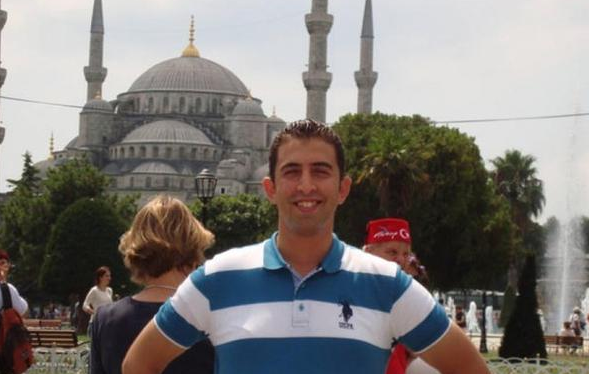
Since the attack on the satirical newspaper, Charlie Hebdo – whose perpetrators allegedly acted in the name of Islam – the proliferation of Islamophobia in the western world has become a central theme on Turkish social networking sites. Most Turks face no Islamophobia in their daily lives, but do encounter it when they contact European embassies, as when applying for visas. It is important to note that Turkey has been applying for membership in the European Union since 1963, a fact that intensifies the feelings of humiliation and insult when visa applications are rejected. Moreover, according to reports in both the mainstream media and social media platforms, the massacre Charlie Hebdo exacerbated the situation, causing many Turks’ requests to visit Europe to be denied for no reason.
The discourse on social media platforms shows that many Turks are convinced that they, through no fault of their own, have become victims of increasing prejudice and Islamophobia in Europe. Statements of this kind peaked after it was learned that the French Embassy refused to grant a visa to a well-known Turkish businessman, Sami Kızıldağ, who wanted to take his daughter to Disneyland Paris. Kızıldağ’s terse response – “I was ashamed to be a Turk” – seems to epitomize the Turkish sentiment, and has become a widespread protest slogan on social media.[1] Expressions of frustration in light of the deteriorating image of Islam became more strident after ISIS executed a Jordanian pilot, Moaz al-Kasasbeh, by burning. Like their reactions to videos of prisoners being beheaded, a vast majority of users strongly condemned the execution of al-Kasasbeh, and many shared pictures of the pilot during a visit to the Old City of Istanbul on their profiles.[2]
The Turkish public’s opinion of ISIS has never been more negative. A survey conducted in October shows that 92.5% of respondents opposed the organization, with only 4% expressing their support.[3] This trend is also prominent on social media: only a few saw fit to praise the execution of the pilot, claiming that he had killed many members of ISIS. The sweeping condemnation of the execution on SNS was accompanied by discussions posing the questions, What is true Islam? Are the actions of ISIS religiously acceptable? Users supported their arguments with quotations from the Koran.[4]
The murder of three members of a Muslim-American family in North Carolina on February 10, shocked both social media and the establishment media in Turkey, further contributing to volatile tempers and discussions of the growing Islamophobia in the West. This feeling was reflected in the sharply critical remarks of President Erdoğan, who condemned President Obama because the latter was slow to denounce the crime or call it “Islamophobic murder.” The front page of the government-affiliated newspaper Yeni Şafak headlined its report of the murder “Islamophobic massacre.” Erdoğan’s words and an image of the paper’s first page went viral online. In addition to this protest, users complained about the minimal coverage of the murder on international news outlets, compared to their coverage of the killings at Charlie Hebdo. They expressed their frustration by sharing the famous photograph of three monkeys, “Hear no evil, see no evil, speak no evil.” [5]
In conclusion, the growing influence of Islam in Turkey, the strengthening of anti-Islamic positions in the West, and provocative images distributed by ISIS caused many Turks to call for efforts to improve the image of Islam in world opinion. They were joined by the Turkish government, who wants to present itself as the patron of the entire Muslim world while striving to brand Ankara as a capital representing a tolerant Islam that rejects violence of any kind. As part of these efforts, Erdoğan is attempting to create an equation that defines Islamophobia as a crime equivalent to anti-Semitism. This position has been reflected in many of his statements for a long time; now the government is leveraging the murder of the American students to raise awareness of Islamophobia, bolster its legitimacy, and make it into a weapon that Turkey can wield against anyone it considers an “enemy of Islam.”
Notes
[1] Türklüğümden utandım, “Bir daha gitmem Paris’e”, Hürriyet, January 25, 2015, http://bit.ly/1vs4VY1
[Accessed: February 13, 2015]
[2] Ürdünlü Pilot
[3] Türkiye’nin Nabzı Ekim 2014 Savaş ve Barış Arasında Türkiye’nin İç ve Dış Politikası http://bit.ly/1yyqLJQ [Accessed: February 13, 2015]
[4] #Gerçekİslam, Gerçek İslam
[5] İslamofobik katliam #islamofobi ChapelHillShooting#








